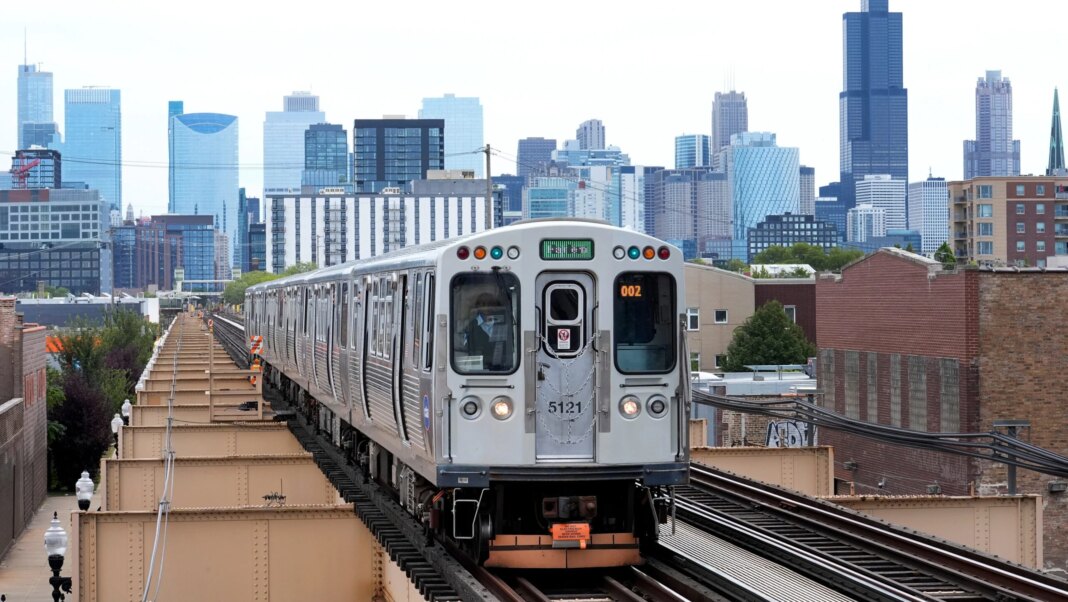The Funding Freeze: Trump Administration Targets Infrastructure in Democratic Areas
In a move that has sparked considerable concern and debate, the Trump administration announced the withholding of $2.1 billion earmarked for infrastructure projects in Chicago. This action, revealed by White House budget director Russ Vought, expands the ongoing funding disputes that have seen Democratic-led regions face significant financial setbacks, especially in light of the current government shutdown.
Implications for Chicago’s Red Line Extension
At the heart of this funding freeze is a vital expansion plan for the Red Line train in Chicago. This extension aims to add four new train stops on the city’s South Side, an initiative poised to enhance public transportation access for disadvantaged communities. The Administration claims the funds are being withheld to prevent “race-based contracting,” a claim that has fueled criticism and skepticism among city officials and residents alike. Critics argue that withholding these funds could have devastating impacts on many who rely on public transit for their daily commutes and socioeconomic advancements.
Comparisons with New York’s Infrastructure Projects
This isn’t a unique situation for Chicago. Earlier in the week, Vought announced a similar pause affecting New York’s infrastructure projects, with $18 billion also on hold. This includes significant projects like a new rail tunnel under the Hudson River and the Second Avenue subway line extension. By freezing these funds, the administration aims to scrutinize purported “unconstitutional practices,” a vague assertion that further complicates the matter.
As the New York government grapples with project delays, Senate Democratic leader Chuck Schumer has publicly condemned the funding freeze, emphasizing the substantial economic ramifications it poses for commuters and job seekers. He described the withholding of funds as “stupid and counterproductive,” highlighting that such infrastructure initiatives generate tens of thousands of jobs, serving as a keystone for both regional and national economic stability.
The Broader Context of Political Tensions
This funding fight is unfolding against the backdrop of a government shutdown that has trapped many projects in limbo, leaving workers furloughed and communities in jeopardy. Trump, keen to underscore his tough stance, has supported Vought’s methods, even drawing parallels to ominous imagery, such as appearing in a video as the “reaper,” which conflates political resistance with dire consequences for the public infrastructure.
The Transportation Department’s Stance
The Trump Administration’s Transportation Department has asserted that the decision to pause funds was driven by ongoing reviews into whether any unconstitutional contracting practices were being utilized in these infrastructure projects. However, this rationale turns the spotlight on the shutdown itself, which has limited the department’s capacity to conduct thorough evaluations, thus creating a paradox where the review is hindered by the very actions taken to initiate it.
Consequences for Local Economies
The suspension of these funds not only impacts the immediate projects but also reverberates through local economies. For Chicago, this means a setback in its efforts to modernize transit systems and improve public transportation efficiency. For New York, where extensive rail development is at stake, the financial freeze poses risks of delayed job creation and worsening public transit conditions, exacerbating the daily struggles of commuters.
Community Reactions
Responses from local government officials, transportation advocates, and community leaders indicate a rising frustration over these developments. There is a palpable anxiety about how political maneuvers can directly affect the livelihoods of countless individuals who rely on improved infrastructure for access to jobs, education, and essential services.
A Tug of War Over Infrastructure
This tug-of-war over vital infrastructure funding highlights a highly polarized political environment where public needs can often appear sidelined by partisan clashes. Whether or not this funding freeze will lead to broader implications for future infrastructure initiatives remains to be seen, but the stakes are undeniably high for the communities that stand to benefit from such investments.



